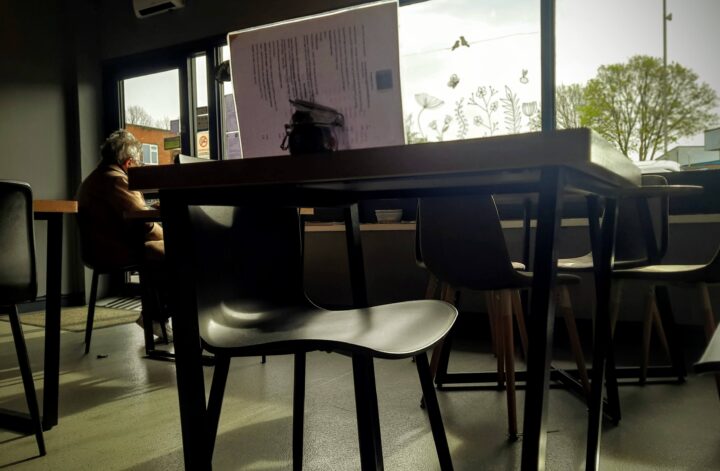Copacabana, Rio de Janeiro: 34oC, hot, sunny, clear blue sky.
I am not feeling well today. After yesterday’s confusion, a flood of memories returned, reminding me of the same situation.
The first time we lived together, Nalva went to work while I decided to clean and tidy the house. Instead of being happy and grateful when she returned, she was quite the opposite—filled with resentment and criticism. Our argument that day led to our first separation, and since then, there have been others for similar reasons.
So, I find myself questioning: Am I wrong? Am I foolish? Do I expect too much even after so many similar experiences? Why do I insist on holding onto something that seems broken and doesn’t indeed exist?
If I could, I would gather my things and disappear. It is something I would genuinely love to do. I see many families that seem happy, and I cannot help but wonder why it is so difficult for me to have anything that resembles that happiness. I am not feeling sorry for myself; I genuinely want a change. I long for something tranquil and soothing. I do not want to keep repeating the same mistakes.
I am disappointed with Nalva, but I am even more disappointed in myself for a few reasons. First, I allowed myself to get into this situation. Second, I let her affect me—maybe I reacted more for Yasmin’s sake than for my own. Yes, Yasmin will have to coexist with her while I travel. Lastly, I am frustrated with myself for confronting her. I should not have done that, but it all became too much.
Jordan Peterson has often discussed the differences between men and women. He emphasises that men tend to be big and strong, using their physical strength in conflicts. In contrast, women, who may not possess the same physical strength, often rely on their intellect to navigate disputes. This dynamic explains why, at times, a woman can outmanoeuvre a man; she employs arguments that he may not consider. Consequently, men often find themselves at a mental disadvantage in such situations.
We all have our weapons in war. A man’s weapon is often his physical size and strength. In contrast, facing a physical disadvantage, a woman relies on her intellect. Therefore, a man is typically at a disadvantage when arguing with a woman.
I have decided to distance myself for now. I want to focus on preserving my well-being until the trip. As I have mentioned, I am more disappointed with myself than her. One of the reasons I temporarily moved in with Nalva and Yasmin was not just for financial gain but also to ensure that everything is all right before I travel so they will be okay while I am away. Naturally, I am more concerned about Yasmin since she is my daughter. When I return to Brazil, I will need to find a place to live and start over. I do not plan to come back and live with them.
Sadia Khan is another well-known psychologist on the internet who discusses relationships. She states that the determining factor for a lasting relationship is how well we manage our childhood traumas.
Many of us have examples from our parents of unstable and aggressive relationships, which can negatively affect our future partnerships. As we grow older and get involved with someone, we may begin to sabotage ourselves and the relationship because we feel that everything is “too good to be true.” These unresolved childhood traumas can lead us to undermine our own future romantic connections.
Often, we become more accustomed to conflict and confusion than to peace and tranquillity. We might find ourselves questioning, “Is it me, her, or are both of us broken?” instead of seeking something soothing and safe. Unfortunately, we may end up experiencing more confusion and aggression than peace and well-being.
Sometimes, I miss the peace of living alone in Copacabana. I could do whatever I wanted, whenever I wanted, and with whoever. As humans, we might think we can go it alone, but we are inherently social creatures; we thrive in groups and partnerships. It makes sense for us to support our partners, just as they should support us. Without them, things can sometimes feel much worse.
We need to be increasingly aware of our repetitive mistakes or patterns. As human beings, we often find ourselves repeating the same good and bad behaviours. Understanding what is “bad” requires self-reflection, especially regarding our darker side.
Rather than trying to fix these tendencies, we should aim for awareness. By acknowledging them, we can learn to manage and coexist with our flaws, gaining insight into what is beneficial for us and what is harmful. Acknowledging our negative traits can even lead to personal growth.
Hiding our flaws and negative tendencies only causes them to fester. If we allow them to grow unchecked, they can become overwhelming. Many of us are apprehensive about confronting our flaws, especially those rooted in childhood. However, when we face these hidden aspects—like opening Pandora’s box—we have the opportunity to grow into better individuals.
This transformation benefits not just ourselves but also those around us.
In bed by 11.00 pm.
Thank you.
Thanks for reading this blog post. Please explore my other posts and share your thoughts in the comments section.
Richard








